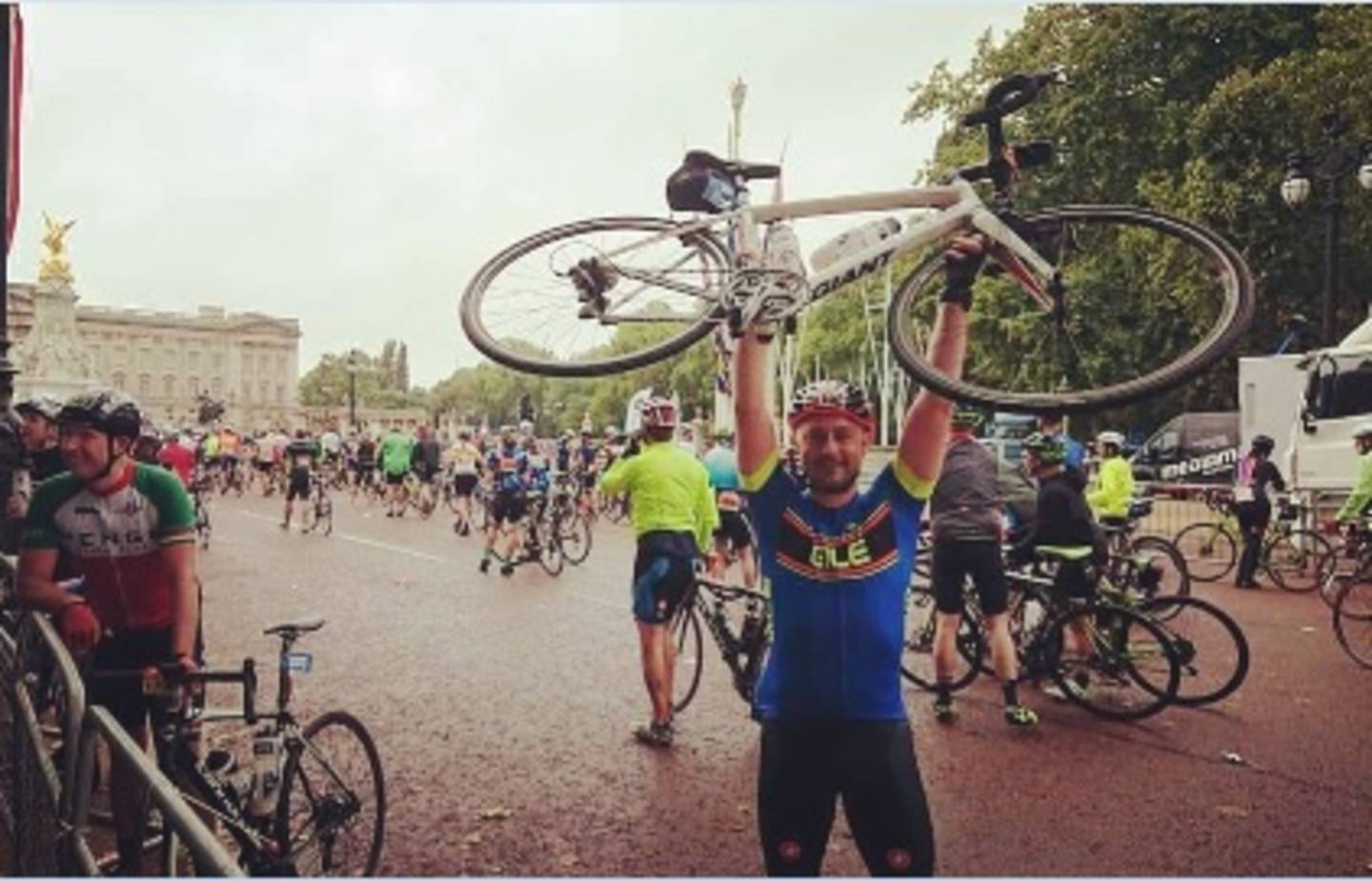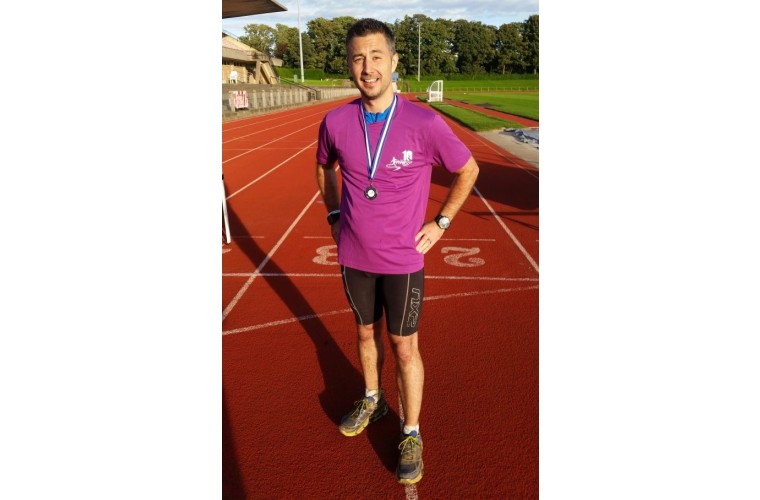Blog: “Diabetes can be an extra challenge to sport and exercise"
Today is World Diabetes Day, a global awareness campaign for people with diabetes led by the International Diabetes Federation. Their mission is to promote diabetes care, prevention and cure worldwide. To mark this important occasion, Craig Waugh blogs for us about his experiences of being active with type 1 diabetes.

Hi my name is Craig Waugh, I’m 38 years old and live in North Yorkshire. I was diagnosed with type 1 diabetes in 2012 (aged 31), a lot later than many other people with type 1.
There are lots of myths about diabetes and people get mixed up between type 1 and type 2. Type 1 is an auto-immune condition where my immune system destroyed the insulin producing cells in my pancreas. I have to manually manage my blood glucose levels by adjusting the amount of carbohydrates I eat along with the amount of insulin I give myself, through injections or more recently using a small electronic insulin pump attached to me.
I’ve always played football, as a child I played for and captained my local football team from the age of five, all the way through university and then onto open age football. At university I studied sport and exercise science with a focus on sports coaching, so it’s fair to say sport and exercise has always been a massive part of my life.
I took up running, shortly before I was diagnosed with type 1 diabetes. With the view to add cycling and swimming into the mix and fulfil the ultimate ambition of completing an Iron Man distance triathlon.
I didn’t really know much about type 1 diabetes when I was diagnosed and my immediate reaction was that I’d have to stop taking part in sport and exercise. This was a huge blow as much of my social life revolved around football and running.
I’m pleased to say I educated myself about the condition and discovered it didn’t mean an end to my sporting days. In fact, I’ve achieved much more with type 1 diabetes than I ever did before. Since my diagnosis, I’ve completed countless half-marathons, five marathons, a 40-mile ultra-marathon and the Ride London 100 mile cycle sportive.
 Diabetes can be an extra challenge to sport and exercise, but with good blood glucose management it definitely doesn’t have to stop anyone taking part.
Diabetes can be an extra challenge to sport and exercise, but with good blood glucose management it definitely doesn’t have to stop anyone taking part.
My friends and family are really supportive of my condition although I wouldn’t say they completely understand it. When I went back to playing football following my diagnosis, I got very confused looks in the changing rooms whilst giving myself an insulin injection. I just told them not to worry, it keeps my blood glucose levels under control. Now, no one bats an eyelid when they see me taking a finger-prick blood glucose test or using my insulin pump. They think I’m some kind of bionic man.
I still play football on Saturdays. Many of the team are old school friends, there’s a real bond between us and always a story to tell over post-match drinks. A lot of my running I do alone and I find this quite therapeutic, as I like to trail run in the countryside away from any hustle and bustle. With three children life can be quite hectic, I’m lucky to have a very understanding wife who supports my appetite for sport and exercise.
Positive mental health is also really important to me. A 24/7 condition like type 1 diabetes can really impact a person’s mental health, so I try to stay aware of this. Being active keeps me in touch with many of the people I care about.
From a medical perspective exercise increases the body’s insulin sensitivity, so I need less insulin overall and I find the insulin tends to act faster. This means that my blood glucose levels don’t spike as much when I’m eating, reducing the risks of diabetes related health complications longer term. My recent diabetes annual review showed that my long term blood glucose levels are now comparable with someone without diabetes. I put a lot of this down to staying active.
Since my diagnosis, I am most proud of completing multiple marathons, the 40-mile ultra-marathon and the 100 mile Ride London cycle sportive. Managing blood glucose levels for the whole duration (and after) these events can be very challenging, not to mention the physical exertion and training required. My next challenge is the 50-mile Lakes in a Day ultra-marathon in October 2019.
The advice I would give anyone with diabetes thinking about being more active is “go for it!” and make sure you carry enough fast acting glucose such as jelly babies or dextrose tablets. Also go online for advice, there are loads of tools, resources and support groups to help people with diabetes lead an active lifestyle.
Check out Craig’s blog, as he documents his journey from type 1 diabetic to Iron Man finisher.
Being active with Diabetes
Diabetes falls under the definition of a disability under the Equality Act 2010. It is often described as a hidden impairment and many people with diabetes would not consider themselves as disabled. Some people with the condition will have additional impairments as a result, e.g. visual impairment due to diabetic retinopathy.
Activity Alliance is raising awareness of the benefits of being active in controlling type 1 and 2 diabetes. Doing a combination of aerobic (or high intensity interval training) and resistance exercise can have a positive impact on diabetes management and help to prevent type 2 diabetes.
For more information and advice about diabetes and exercise visit Diabetes UK website.